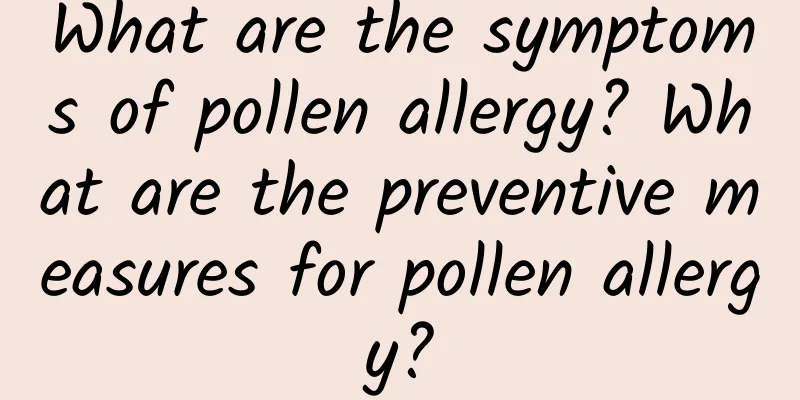I feel itchy down there after every menstrual period

|
Menstruation is very important for women. Many women experience some discomfort during and after menstruation. For example, many women experience itching down there after their menstruation ends. There are many reasons that lead to this situation, such as menstrual allergies, menstrual blood irritation or vaginal inflammation, which can lead to this symptom. Next, I will introduce to you the reasons for itching below after menstruation and related knowledge about menstruation! 1. Surprise End of the Causes of Vulvar Itching Your resistance is low during menstruation, and you experience vulvar itching after your period is over. The first thing you should consider is that it is caused by an allergy to sanitary napkins or irritation from menstrual blood, but it may also be a symptom of vaginitis. You can apply anti-itching ointment topically, do vaginal douching, and add medication for treatment, but it is best to go to the hospital for routine tests of leucorrhea, get a clear diagnosis, and then receive targeted treatment. 2. Diet should be appropriate during menstruation In fact, it is not just ice. Some foods with cool properties, such as ice cream, eggplant, loofah, cucumber, winter melon, crab, snail, kelp, bamboo shoots, orange, pear, grapefruit, watermelon, etc., and sour foods, such as sour plums, unripe sour fruits, or spicy foods, such as fried foods, chili, pepper, mustard, etc., should also be avoided during menstruation to avoid blood flow problems. During menstruation, you should eat more green onion, fungus, peanuts, walnuts, dates, longan and rose. If you accidentally eat cold food during your menstrual period, or can't help eating ice, you can drink more brown sugar boiled ginger to balance the blood circulation in your body and promote blood flow. Eat less irritating food, eat more vegetables and fruits, keep bowel movements smooth and avoid pelvic congestion. During menstruation, you are prone to fatigue and drowsiness, and your emotions may fluctuate greatly, so it is best not to drink strong tea, coffee, etc. 3. Keep clean during menstruation Keep the vulva clean: During menstruation, the resistance of the vulva decreases and it is susceptible to bacterial infection, so the vulva should be cleaned every day. But it is not suitable to take a bath in a tub, you should take a shower instead, and it is better to wipe your body with warm water during menstruation. Cleaning of menstrual products: Be sure to keep sanitary napkins clean and purchase sanitary napkins that are approved for sale by the national health department; if you use sanitary belts, dry them in the sun after cleaning. |
<<: How long after giving birth can I have sex?
>>: Abdominal pain after intercourse on ovulation day
Recommend
Premenstrual dizziness
If you experience dizziness before your period bu...
Causes of itchy breasts during pregnancy
The physical condition of pregnant women is relat...
What foods are good for your ovaries?
Female friends all hope that they will always loo...
How to treat uterine fibroids 0.8
The uterus is a very important reproductive organ...
Is cervical conization a minor surgery?
Cervical conization is both a method of cervical ...
10 gynecological common sense that women must know
Fungal infection is like a "gynecological co...
What are the benefits of eating hot dry noodles with sesame paste? How to make sesame paste for hot dry noodles
Although sesame is small, it contains great energ...
Calculate the safe period of ovulation
The ovulation period is generally around the 14th...
What is the correct way to wean off breast milk?
Sometimes mothers cannot breastfeed their childre...
What to do with small uterine cysts
For women, once the uterus has a disease, it will...
What causes blood in women's urine?
Because of the accelerated pace of life, modern w...
How often does menstruation come to be normal?
I believe everyone knows the importance of menstr...
What to do if a girl gets pregnant unexpectedly
Couples nowadays are more open-minded, so they ha...
What to do if you have hypothyroidism during early pregnancy
Hypothyroidism is a very common disease. Some wom...









